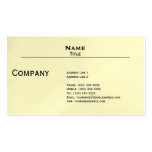Suggestions
- Research state laws. Find out what is required to get a private investigative license. Most private investigation work will require a license in order to perform them.
- Get the proper training. This is important because some private investigation work will require surveillance and counter-surveillance, so it's necessary to have the proper training on such procedures from experts. Check your area for training programs. Bear in mind how much time and money you'll need to devote to this training. If you are not prepared to put in that time and money to become properly trained, then you might need to reconsider your plans
- Apply for a private investigator license. Make certain that you include all the necessary information and documentation, and comply with all the necessary laws, to meet any and all requirements.
- Get a job at an established investigative agency. Not only will this further your experience as a private investigator, but it will also create contacts. You'll want to have some clients before you begin your business. This will also establish your reputation in the field and increase word-of-mouth. Law offices also hire private investigators, so search for any law firm or office to check to see if they might be in need of your services. Once you've gained enough experience, you're ready to start the business.
- Research local business laws and registrations. Check with your local government on requirements for business licenses, registrations or certifications that you need to apply to start a business. Then, follow all of the requirements.
- Find a niche. What area of expertise will you bring to the work? For instance, if you have knowledge in retail or marketing, you can advertise yourself as a retail investigator. If you have experience in surveillance work, you can offer your services to any number of people, organizations or corporate interests interested in hiring this type of service. When starting a company, it's always important to brand yourself so that you will be able to provide a specific niche that other companies in your area don't offer.
- Raise business capital. Determine where and how you will find investors for your business. Look at whether you have any venture capital (such as credit cards, mortgage or money from family members) that you are willing to tap into. Banking loans or investment capitalists might be other resources. Take economic issues into consideration before pursuing venture capital, and make the appropriate plans.
- Rent an office. You might consider using your home or apartment as a location to keep down costs, but a private office might offer you the kind of professionalism you'll need to get and keep clients. Look for a location that has high traffic for business and is accessible.
- Start advertising. Place ads in your local newspaper, Yellow Pages or on Internet services such as Craig's List. Take into consideration the amount of money you'll need to spend on advertising. Also consider putting up a web page for your business. The Internet can be a valuable resource for building up your clientele, but remember: Take into consideration how much money you'll want to spend to build and operate a professional-looking website.
- Establish a professional reputation. Not only will your professionalism leave your clients satisfied, it will also prevent any problems with the state in keeping your license. It's also important to have a clean record. Clients will do thorough research to determine if you're trustworthy. If they discover a past arrest record, they will be less likely to hire you--especially for sensitive work.
______________________




 Eggshell (Textured) Business Card
Eggshell (Textured) Business Card



No comments:
Post a Comment